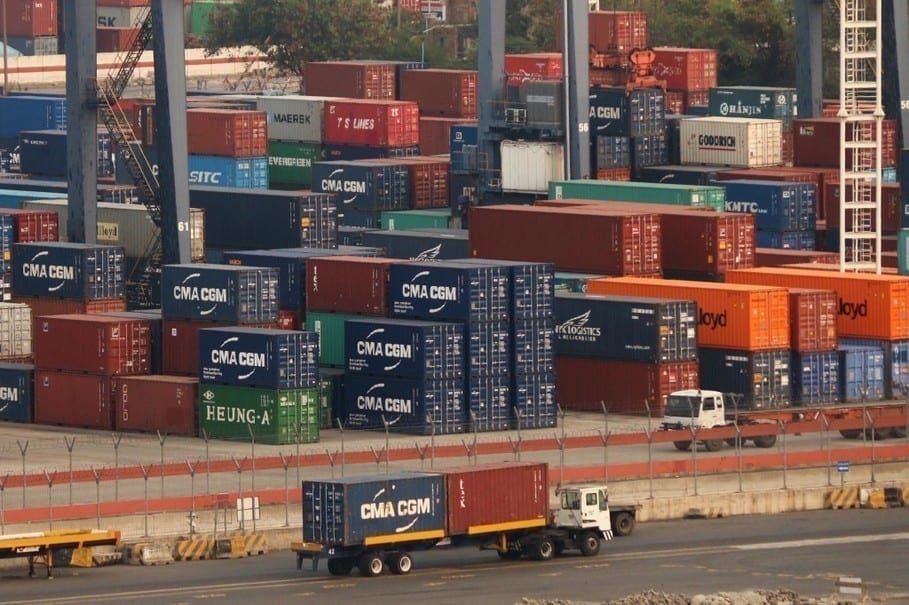
While bracing for the fallout from a trade war between China and the United States, Indonesia is doing its best to avoid sparking a trade war of its own with the world’s largest economy.
Indonesia found itself on the wrong end of a trade imbalance with the United States, amid President Donald Trump’s apparent dislike of trade deficits.
Now the United States is planning to a revoke duty-free incentive for Indonesian goods under the Generalized System of Preferences (GSP), imposed in 1976 to increase poor and developing countries’ competitiveness in global trade. This could affect some $2 billion in Indonesian exports to the United States.
If the plan passes, it could have serious repercussions for Indonesia’s manufacturing and agricultural sectors – key industries that provide most of the jobs in the archipelago.
“I think the problem is the United States’ attitude towards trade and specifically towards surpluses and deficits. It’s a fundamental misunderstanding of the way trade works… It’s unfortunate that Indonesia has been singled out, simply for having a trade surplus,” Chris Clague, managing editor of the Economist Intelligence Unit’s thought leadership division in Asia said.
Indonesia ranked in 16th place among countries with trade surpluses with the United States at $9.7 billion last year – nearly three times higher than in 2013.
The United States has been demanding greater access for its goods, services and investments in Indonesia, in addition to several other issues, such as stronger intellectual property rights protection. But Indonesia does not have a comprehensive bilateral free-trade agreement with the United States and efforts to bring the countries in under multilateral deals such as the Regional Comprehensive Economic Partnership (RCEP) and Trans-Pacific Partnership (TPP) also fell through, leaving limited avenues for the United States to get what it wants.
“[The GSP] is a unilateral agreement, so if [the United States] wants to evaluate it, we have no right to protest. We can only serve what they want,” Coordinating Economic Affairs Minister Darmin Nasution told reporters last week.
“Because the government has an interest in maintaining the facility… we will do everything we can to keep it,” he said.
Trade Minister Enggartiasto Lukita will lead a team to the United States on July 21-28 to try and persuade that country to keep its special tariff treatment for some Indonesian products, the ministry said in a statement.
This will be the first official meeting between the Ministry of Trade and its US counterpart under Trump’s presidency.
“Indonesia is ready to partner with the United States and address the issue of a trade deficit because the two countries have products and services that are not competing but complementary,” Enggartiasto said in the statement.
While the United States is also evaluating special tariffs for India and Kazakhstan, Indonesia is the only country that has been given a chance to discuss the matter with the United States.
“We can lobby the United States because we have a big market, an investment destination, a strategic region and good economic potential in the region. So our bargaining position is very strong to negotiate with the United States,” Indonesian Textile Association (API) chairman Ade Sudrajat said on Tuesday.
He said Indonesia should establish a free-trade arrangement with the United States to ensure that country cannot withdraw its trade facilities as it wishes. That way, Indonesian exports can also easily enter the United States and be more competitive as it will not be subject to tariffs, he said.
According to the Trade Ministry, there are plans to finalize six free-trade agreements or comprehensive economic partnership agreements this year. They include the RCEP, Indonesia-Australia Comprehensive Economic Partnership Agreement, Indonesia-European Free-Trade Association, Indonesia-EU Comprehensive Economic Partnership Agreement, Indonesia-Iran Preferential Trade Agreement and Indonesia-Malaysia Border-Trade Agreement.
Steel Spillover
The world’s two largest economies kicked off a trade war two weeks ago with the United States imposing punitive tariffs of 25 percent on $34 billion worth of Chinese imports, which prompted the latter to immediately retaliate. The United States wants to reduce its trade deficit with China after it hit a record high of $275.81 billion in 2017.
The United States imposed import tariffs on several Chinese products, including steel and aluminum, which could spill over to other countries, such as Indonesia. The archipelago forms part of a free-trade arrangement between the Association of Southeast Asian Nations (Asean) and China, which commenced in 2010.
Indonesian steel imports rose 33 percent to $4.7 billion in the first half of this year, compared with the same period a year ago.
But Hidayat Triseputro, executive director of the Indonesian Iron and Steel Industry Association (IISIA), said between 25 percent and 30 percent of the steel imports are the result of dumping, making it very difficult for local producers to compete.
Indonesia produced 4.8 million metric tons of the alloy last year, according to World Steel Association data. This is a tiny amount compared with the 831.7 million tons by China, the world’s largest steel producer.
Still, domestic production should be enough to cover 90 percent of Indonesian steel demand.
“Imports dominate up to 40 percent of our market… That’s why we want to tighten imports; there must be detailed data to screen them,” Hidayat said.
However, what happens with the steel industry could soon befall other industries. The International Monetary Fund has warned that a trade war between the United States and other countries could cost the global economy $430 billion and risk lowering global growth by 0.5 percent by 2020.
“This is potentially very, very bad, if not bordering on something catastrophic. The world economy has finally recovered from the impact of the 2008-09 global financial crisis … and now we’re running into a situation that could have a potentially devastating and deadening effect on global trade,” said Clague of the Economist Intelligence Unit.